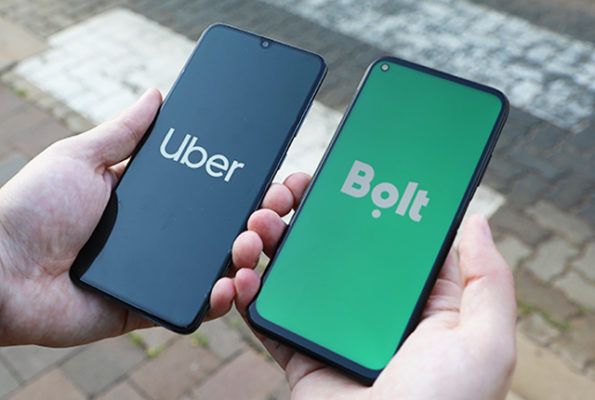Uber and Bolt Drivers Strike in Cape Town

In Cape Town, Uber and Bolt drivers went on strike in protest of rising commission fees and reduced commission rates. The strike began on Wednesday and is scheduled to last until Thursday. On Wednesday, the drivers presented a list of demands to the Bolt offices in Cape Town. Drivers will deliver a statement to Cape Town Mayor, Geordin Hill-Lewis’ office on Thursday to protest what they claim is the metro police’s racial profiling of drivers and passengers, as well as to urge that the city speed up the permitting process for e-hailing drivers.
Uber and Bolt drivers went on strike demanding a better payment system that would increase their income, according to Uber Union Chairperson Siyabonga Hlabisa, who spoke to Fin24. According to Siyabonga Hlabisa, drivers want Uber to reduce its commission from 25% to 10% and raise the rate per kilometer to R10. The drivers demand a moratorium on vehicle impoundment in addition to a quicker renewal process for permits, which currently have a large backlog.
Drivers who were protesting gave the businesses 14 days to comply with their demands.
Full video pic.twitter.com/1nFEJz309M
— mike mutevani (@MikeMutevani) August 17, 2022
Due to rising fuel prices, Uber has already raised its prices three times this year. 20% more is now being charged by Bolt. According to Hlabisa, the drivers are worried about their own safety and want Uber to stop deactivating them.
What the Firms Are Saying
In order to negotiate potential price increases, Uber and Bolt representatives met with drivers in Gauteng on Tuesday. The provincial government sponsored the conference, which will be followed by separate sessions for Bolt (August 25) and Uber later this month (26 August).
Mpho Sebelebele, the head of communications for Uber in South Africa, informed MyBroadband that the firm was aware of the demonstration. Sebelebele noted that the firm will continue to directly engage drivers through our different engagement channels to work towards addressing the concerns.
According to Sebelebele, Uber has already imposed numerous fare increases in 2022, the most recent of which was announced in July.
“We recognise the pressures drivers are under, including the increasing cost of living. It’s important to understand that fares do fluctuate as a normal part of any business based on various factors such as seasonality and the macroeconomic environment.
“Recently, we have seen driver earnings begin to recover in South Africa and we are constantly looking for ways of helping drivers increase their earnings on the platform while providing riders with more cost-effective options of moving around,” said Sebelebele.
Takura Malaba, the Bolt country manager for South Africa, stated that the firm was also interacting with its driver community and would continue to interact with the group of striking drivers in order to better comprehend their complaints.
